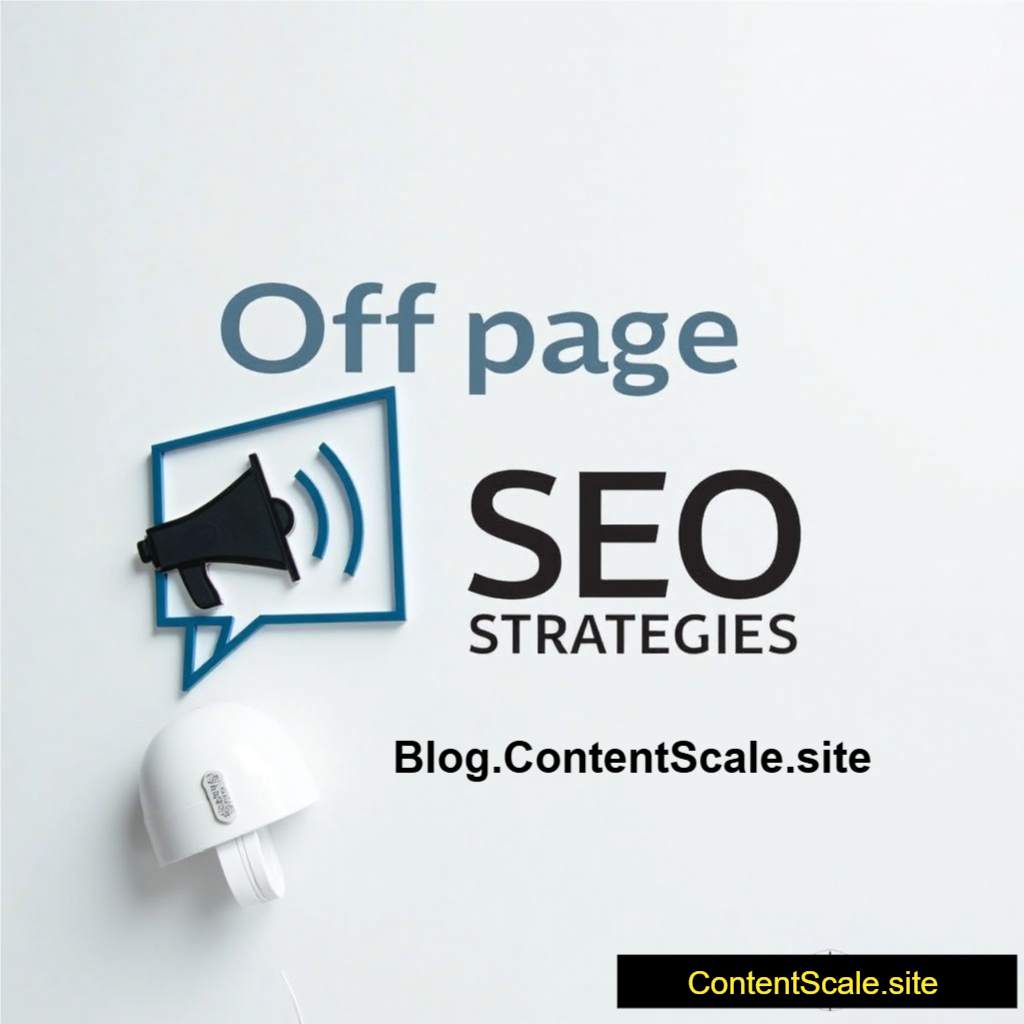Introduction to SEO for Netherlands 🇳🇱
Complete guide for expats and international businesses in 2025
Table of Contents
🎯 SEO Basics for Netherlands Market
Search Engine Optimization in Netherlands requires understanding the unique digital landscape where privacy, local trust, and multilingual capabilities intersect. The Netherlands boasts one of the highest internet penetration rates globally at 99%, with 18.1 million users actively online as of 2025.
Key Success Factors for Dutch SEO
- Mobile-First Approach: 92% of Dutch users access internet via smartphones, requiring mobile-optimized experiences
- GDPR Compliance: Strict privacy laws make compliance a ranking factor and trust signal
- Local Business Validation: KvK registration provides crucial legitimacy signals
- Bilingual Strategy: High English proficiency allows for multilingual content approaches
- Trust Signals: Dutch consumers highly value transparency and local expertise
Netherlands vs Global SEO Differences
| Factor | Global Standard | Netherlands Requirement | Impact Level |
|---|---|---|---|
| Privacy Compliance | Basic cookie consent | Strict GDPR + Dutch privacy law | Critical |
| Business Validation | Optional local listings | KvK registration required | High |
| Mobile Optimization | 70% mobile traffic | 92% smartphone usage | Critical |
| Language Strategy | Single language focus | Dutch + English bilingual | High |
🔍 Understanding Dutch Search Behavior
Dutch internet users are among Europe’s most sophisticated, with distinct patterns shaped by high digital literacy, privacy consciousness, and multilingual capabilities. Understanding these behaviors is crucial for effective SEO targeting.
Search Engine Market Share Netherlands 2025
| Search Engine | Market Share | User Characteristics | Optimization Priority |
|---|---|---|---|
| Google.nl | 88.8% | All demographics, mobile-first | Primary Focus |
| Bing | 4.3% | Business users, Windows integration | Secondary |
| Yandex | 2.9% | Eastern European expats | Niche |
| Other | 4% | Privacy-focused users | Minimal |
Key Dutch Search Characteristics
- Question-Based Queries: Frequent use of “hoe” (how), “wat” (what), “waar” (where)
- Local Intent: 68% include location-specific terms or “in Nederland”
- Mobile Dominance: 92% access internet via smartphones
- Voice Search: Growing adoption, especially on mobile devices
- Review Dependency: Strong influence of online reviews on purchase decisions
⚖️ GDPR and Legal Compliance
Legal compliance in Netherlands goes beyond avoiding fines—it’s a crucial trust signal and ranking factor. Dutch users are highly privacy-conscious, and search engines factor compliance into their algorithms.
Essential GDPR Requirements for Netherlands SEO
- Cookie Consent Management
- Granular consent for all tracking cookies
- Clear opt-in/opt-out mechanisms
- Dutch language consent notices
- Privacy Documentation
- Comprehensive privacy policy in Dutch
- Data processing activity records
- Cookie policy with technical details
- User Rights Implementation
- Data access request systems
- Right to rectification processes
- Data portability mechanisms
- Right to be forgotten implementation
- Data Security Measures
- EU-hosted data storage
- Encrypted data transmission
- Regular security audits
GDPR-Compliant SEO Tools for Netherlands
- Analytics: Google Analytics 4 (EU mode), Matomo (EU-hosted)
- Cookie Management: Cookiebot, OneTrust, CookieYes
- Privacy Policies: Termly (Dutch support), PrivacyPolicies.com
- Hosting: EU-based CDNs and hosting providers
🏢 KvK Registration and Business Setup
The Kamer van Koophandel (KvK) registration is more than legal compliance—it’s a powerful SEO signal that significantly impacts local search performance and consumer trust in Netherlands.
SEO Benefits of KvK Registration
- Local Search Ranking: Up to 35% improvement in location-based searches
- Trust Signals: Increases click-through rates and user confidence
- Google Integration: Automatic syncing with Google My Business profiles
- Schema Markup Enhancement: Official business data for structured markup
- Credibility Boost: Demonstrates serious business commitment
KvK Registration Process for SEO Benefits
| Step | Action Required | SEO Impact | Timeline |
|---|---|---|---|
| 1. Business Structure | Choose BV, Eenmanszaak, or other Dutch legal form | Foundation for legitimacy | 1-2 days planning |
| 2. Online Registration | Complete KvK.nl registration system | Official business creation | 1-3 business days |
| 3. KvK Number | Receive unique Chamber of Commerce number | Trust signal implementation | Immediate upon approval |
| 4. Website Integration | Add KvK number to footer and contact pages | Immediate trust improvement | Same day |
| 5. Schema Update | Include KvK in organization schema markup | Enhanced search understanding | 1-2 days implementation |
| 6. Google My Business | Connect KvK data to GMB profile | Local search visibility boost | 1-7 days for verification |
🔎 Dutch Keyword Research Strategy
Effective keyword research for the Dutch market leverages the unique linguistic landscape where Dutch and English coexist. Most Dutch people speak excellent English, creating opportunities for strategic bilingual SEO approaches.
Dutch Keyword Research Tools
- SEMrush Netherlands: Comprehensive Dutch keyword database with local search volumes
- Ahrefs: International keyword research with Dutch market filters
- Google Trends NL: Dutch-specific search trend analysis and seasonal patterns
- Google Keyword Planner: Set location to Netherlands for accurate local data
- AnswerThePublic: Dutch question-based keyword discovery
High-Value Dutch Keyword Categories
| Category | Dutch Examples | English Examples | Search Volume Trend |
|---|---|---|---|
| Location + Service | “SEO Amsterdam”, “webdesign Utrecht” | “marketing Rotterdam”, “web development Hague” | High local intent |
| Question Keywords | “hoe werkt SEO”, “wat kost website” | “how to optimize website”, “what is digital marketing” | Growing voice search |
| Commercial Intent | “beste SEO bureau”, “online marketing kosten” | “top web design agency”, “SEO services pricing” | High conversion value |
| Industry Specific | “e-commerce Nederland”, “webshop maken” | “Dutch online retail”, “ecommerce platform” | B2B focus |
Bilingual SEO Strategy Framework
- B2B Services: Lead with English keywords, supplement with Dutch
- Local Services: Prioritize Dutch keywords, add English alternatives
- E-commerce: Dutch for product names, English for technical terms
- Tech/SaaS: English primary, Dutch for local market penetration
⚙️ Technical SEO for Dutch Websites
Technical SEO in Netherlands requires special attention to mobile performance, European hosting considerations, and multilingual technical implementation to serve the sophisticated Dutch user base effectively.
Netherlands-Specific Technical Requirements
- EU Data Centers: Host in European servers for GDPR compliance and faster loading
- Mobile-First Indexing: Google primarily uses mobile versions for Dutch sites
- Hreflang Implementation: Proper tags for nl-NL and en-NL content versions
- Local CDN: European CDN endpoints for optimal performance
- SSL Certificates: EU-trusted certificate authorities preferred
Core Web Vitals Benchmarks for Netherlands
| Metric | Good | Needs Improvement | Poor | Dutch User Expectation |
|---|---|---|---|---|
| LCP (Largest Contentful Paint) | < 2.5s | 2.5s – 4.0s | > 4.0s | Under 2.0s preferred |
| FID (First Input Delay) | < 100ms | 100ms – 300ms | > 300ms | Under 50ms expected |
| CLS (Cumulative Layout Shift) | < 0.1 | 0.1 – 0.25 | > 0.25 | Minimal visual shifting |
Technical SEO Implementation Checklist
- Performance Optimization
- Optimize images for mobile devices (WebP format)
- Implement lazy loading for better mobile experience
- Minify CSS, JavaScript, and HTML
- Use European CDN for faster content delivery
- Mobile Technical Setup
- Responsive design testing on Dutch mobile devices
- Touch-friendly navigation and buttons
- Mobile-specific schema markup implementation
- Accelerated Mobile Pages (AMP) for news content
- Multilingual Technical Implementation
- Hreflang tags for Dutch and English versions
- Separate XML sitemaps for each language
- Canonical URLs to prevent duplicate content
- URL structure: example.com/nl/ and example.com/en/
Recommended Technical SEO Tools
- Yoast SEO: Excellent Dutch language support and local optimization
- Rank Math: Advanced multilingual and schema features
- Google PageSpeed Insights: Core Web Vitals monitoring
- GTmetrix: Performance testing from European servers
📍 Local SEO and Backlink Building
Local SEO in Netherlands extends beyond traditional optimization, requiring deep integration into the Dutch digital ecosystem through strategic partnerships, local citations, and community engagement.
High-Authority Dutch Link Sources
- Industry Publications: Frankwatching, Emerce, Marketing Tribune, sector-specific magazines
- Educational Institutions: Dutch universities (.edu.nl), research institutes, business schools
- Government Websites: Municipality sites, rijksoverheid.nl, regional authorities
- Local Business Networks: Chamber of Commerce sites, industry associations
- Dutch Media: Regional newspapers, local news sites, business publications
Local Citation Building Priority List
| Platform Type | Examples | SEO Impact | Setup Time | Priority |
|---|---|---|---|---|
| Google Services | Google My Business NL, Google Maps | Critical for local visibility | 1-2 hours | 1 – Must Have |
| Dutch Directories | Detelefoongids.nl, Bedrijfsinformatie.nl | High local authority | 30 min each | 2 – High |
| Industry Associations | Sector-specific Dutch organizations | Targeted authority building | 1 hour each | 3 – Medium |
| Social Platforms | LinkedIn Netherlands, Facebook Business | Social signals and engagement | 2 hours setup | 4 – Supporting |
Content Marketing for Dutch Link Building
- Original Dutch Market Research
- Consumer behavior studies specific to Netherlands
- Industry trend analysis with Dutch data
- Economic impact studies for local businesses
- Local Success Stories
- Case studies from Dutch clients and partnerships
- Interviews with local business leaders
- Community impact and involvement stories
- Educational Resources
- Guides for doing business in Netherlands
- GDPR compliance resources in Dutch
- Tax and legal guidance for international businesses
🤖 AI Overview Optimization for Netherlands
Google’s AI Overviews have fundamentally changed how Dutch users interact with search results, requiring businesses to optimize specifically for AI-generated answer visibility and citation opportunities.
Dutch AI Overview Success Strategy
- Micro-Answer Optimization
- Create 45-50 word direct answers to common questions
- Include specific Dutch data and local context
- Use natural Dutch language and terminology
- Schema Markup Implementation
- FAQ schema for frequently asked questions
- HowTo schema for step-by-step processes
- Article schema with Dutch language tags
- Authority Building
- Cite reputable Dutch sources and organizations
- Include expert quotes from Dutch professionals
- Reference local studies and Dutch market data
Content Structure for AI Overview Success
| Element | Best Practice | Dutch Example | AI Overview Impact |
|---|---|---|---|
| Question Headings | Use H2/H3 with question format | “Hoe werkt SEO in Nederland?” | Direct answer targeting |
| Micro-Answers | 45-50 words, actionable content | Local data + implementation steps | Higher citation probability |
| Local Context | Netherlands-specific examples | KvK registration, Dutch regulations | Relevance for Dutch queries |
| Authority Signals | Cite Dutch sources and experts | CBS data, local business studies | Trust and credibility boost |
AI Overview Optimization Tips for Dutch Market
- Use Current Data: Include 2025 statistics and recent Dutch market trends
- Local Expertise: Demonstrate knowledge of Dutch business practices and regulations
- Clear Structure: Organize content with descriptive headings and bullet points
- Regular Updates: Keep content fresh with current information and data
🛠️ Essential SEO Tools for Netherlands
Effective SEO in Netherlands requires a strategic combination of international SEO tools and Dutch-specific resources to navigate the unique market requirements and opportunities.
Complete Netherlands SEO Toolkit
Keyword Research and Analysis Tools
- SEMrush Netherlands: Comprehensive Dutch keyword database with local search volumes and competitor analysis
- Ahrefs Keywords Explorer: International keyword research with Dutch market filters and SERP analysis
- Google Trends NL: Dutch-specific search trend analysis and seasonal patterns
- AnswerThePublic: Question-based keyword discovery for Dutch market insights
Analytics and Performance Monitoring
- Google Search Console: Essential for monitoring Dutch website performance and search appearance
- Google Analytics 4: GDPR-compliant analytics with EU data processing options
- Matomo: Privacy-first analytics platform hosted in EU for complete GDPR compliance
- SEMrush Position Tracking: Monitor Dutch keyword rankings and competitor movements
Technical SEO and Site Optimization
- Yoast SEO: WordPress plugin with excellent Dutch language support and local optimization features
- Rank Math: Advanced SEO plugin with multilingual features and schema markup tools
- PageSpeed Insights: Google’s tool for Core Web Vitals monitoring and mobile performance
- GTmetrix: Performance monitoring with European server testing locations
Netherlands-Specific Business Resources
| Resource | Purpose | SEO Benefit | Cost |
|---|---|---|---|
| KvK.nl | Chamber of Commerce registration | Business legitimacy and local trust | €50-200 registration |
| Autoriteit Persoonsgegevens | GDPR compliance guidance | Legal compliance and user trust | Free resources |
| Frankwatching.com | Dutch marketing insights and news | Industry knowledge and link opportunities | Free + premium content |
| Emerce.nl | E-commerce and digital marketing news | Market trends and networking | Free + events |
📋 Step-by-Step Implementation Guide
This comprehensive implementation guide provides a proven roadmap for SEO success in Netherlands, designed for expat entrepreneurs, international businesses, and local companies expanding their digital presence.
Phase 1: Foundation and Compliance (Days 1-30)
Week 1-2: Legal and Business Setup
- KvK Registration
- Complete Chamber of Commerce registration at kvk.nl
- Choose appropriate business structure (BV, Eenmanszaak, etc.)
- Obtain official KvK number for business legitimacy
- Add KvK number to website footer and contact information
- GDPR Compliance Implementation
- Install GDPR-compliant cookie consent banner
- Create comprehensive privacy policy in Dutch
- Set up EU-hosted analytics (Google Analytics 4 or Matomo)
- Document data processing activities
Week 3-4: Technical Foundation
- Technical SEO Setup
- Install SSL certificate from EU-trusted authority
- Set up Google Search Console for Netherlands targeting
- Create and submit XML sitemaps
- Implement basic schema markup (Organization, LocalBusiness)
- Performance Optimization
- Optimize Core Web Vitals for mobile users
- Configure European CDN for faster loading
- Test mobile responsiveness on Dutch devices
- Set up European hosting if needed
Phase 2: Content and Keywords (Days 31-60)
Week 5-6: Market Research and Keywords
- Dutch Market Analysis
- Research Dutch competitors and their SEO strategies
- Analyze local search behavior and preferences
- Identify market gaps and opportunities
- Study successful Dutch businesses in your sector
- Keyword Research
Week 7-8: Content Creation and Optimization
- Content Strategy Development
- Create Dutch-focused content calendar
- Plan location-specific landing pages for major Dutch cities
- Develop FAQ sections with schema markup
- Write content that addresses Dutch market needs
- Local Content Integration
- Add Dutch examples and case studies
- Include current Netherlands market data and statistics
- Create content about Dutch business practices
- Implement AI Overview optimization techniques
Phase 3: Authority Building and Growth (Days 61-90)
Week 9-10: Local Citations and Listings
- Google My Business Optimization
- Create and verify Google My Business profile
- Connect KvK data for business verification
- Add high-quality photos and business information
- Encourage customer reviews and respond professionally
- Dutch Directory Submissions
- Submit to major Dutch business directories
- Register with industry-specific Dutch platforms
- Ensure consistent NAP (Name, Address, Phone) across all listings
- Monitor and manage online reputation
Week 11-12: Link Building and Monitoring
- Dutch Link Building Campaign
- Reach out to Dutch industry publications and blogs
- Create linkable content about Netherlands market insights
- Build relationships with Dutch business networks
- Guest posting on relevant .nl domain websites
- Performance Monitoring Setup
- Set up rank tracking for Dutch keywords
- Monitor Google Search Console performance data
- Track Core Web Vitals and mobile performance
- Schedule regular content updates with fresh Dutch data
Ready to Master Netherlands SEO?
Transform your Dutch market visibility with proven SEO strategies designed specifically for the Netherlands business environment and consumer behavior.
What You Get:
- Complete Netherlands SEO audit and strategy development
- KvK registration assistance and business setup guidance
- GDPR-compliant technical SEO implementation
- Dutch market keyword research and content optimization
- Local citation building and Google My Business optimization
- Ongoing performance monitoring and monthly reporting
❓ Frequently Asked Questions




